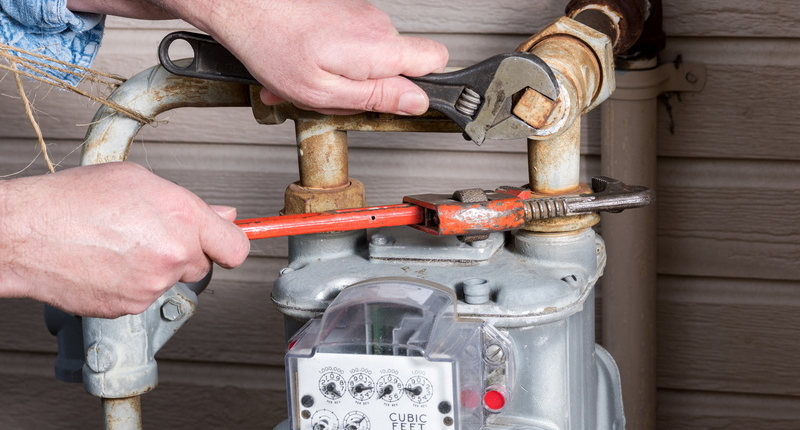Smell Gas in Your Home? It Could Be Coming From One of These 4 Places
You know the smell: it’s a little like rotten eggs, or maybe a little like sulfur, or maybe like someone in your house has eaten a few too many beans. All jokes aside, though, that odor is the unmistakable smell of gas.
You shouldn’t ever smell gas in your home, so if you do, it almost always means there’s a leak somewhere. And, in addition to being a rather unpleasant stench, it’s also an emergency situation, as gas is highly flammable, and a leak could mean serious trouble if it’s not remedied.
Always take gas leaks seriously, and call a plumber first if you can or your utility company if you can’t get a plumber the same day. The utility company will come right out and shut off your gas at the leak. A plumber can diagnose and fix the leak, while the utility company will simply turn off and lockout your gas meter. To get your gas unlocked you will have to have a plumber inspect your home, bring your home up to current plumbing codes and then have the utility company return to verify and unlock your meter. While you’re waiting, open windows and ventilate the area as much as possible to help dissipate the gas.
What appliances in your home are most likely to have a gas leak? Here are four of the most common:
Water heater
You probably don’t make a habit of hanging out in your utility closet with your water heater, but it’s not a bad idea to poke your head in on a regular basis to make sure everything’s in good working order. If you smell gas near your water heater, there’s a good chance you have a leak. Turn the water heater off if you can, as this can keep the pilot light from igniting any leaked gas.
Dryer
Gas dryers are remarkably efficient, but they can also leak if lines are old or valves are no longer fitted properly. Stop using your dryer at the first whiff of gas, especially if you smell it when the dryer isn’t in use. To confirm that you have a leak, you can do a simple soap test by mixing equal parts water and liquid dish soap, then use a washcloth or sponge to apply the soap mixture to the lines. If there’s a gas leak, you’ll see a bubble start to grow. The gas valve by the dryer should be turned off, either by you or by the utility company, and you’ll have to line dry your clothes until the leak is fixed.
Oven
Whether it’s the safety valve, a faulty burner, or the line itself, gas leaks are fairly common around an oven. If you smell gas when nothing’s cooking, you probably have a leak. Sometimes, though, an oven leak isn’t bad enough to smell, but there are other signs, like orange or yellow in your cooktop flames (which should normally be blue), or a pilot light that goes out frequently.
Outdoor grill
Gas leaks on an outdoor grill can be tougher to sniff out since the gas can quickly dissipate into the surrounding air. However, if do smell gas, or if you notice your propane tank ticking toward E a little faster than it should, you might have a leak.
Again, try the soap test to confirm by turning on the valve, turning off the burners, and applying the soapy mixture to the valve and hose. If there’s a bubble on the valve, you’ll want to replace the tank; if it’s on the hose, the hose is cracked and will need to be swapped out for a new one. Don’t use your grill until the leak is fixed.
If you’re in the College Station or Bryan, Texas area, and you’re dealing with a gas leak, call us at JBG Plumbing. We handle all types of gas pipe and water heater repair, and we can get your appliance back up and running after a gas leak.

